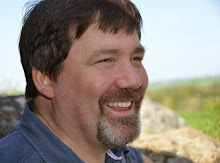Painful honesty with a glimmer of hope for the future.
"As much as postmodern evangelicals bandy about the word “community,” our gatherings have changed very little. Stylistic alterations might add some hipster flair, but the focal point of the liturgical week remains theater. A dozen or so people perform for a few hundred that sit, stand, kneel, pray, and sing on command. We squeeze real community into the gaps, between events with a hierarchical structure."
"In the first century there was still teaching, prayer, and worship, but the early church was about community. Paul’s letters paint a picture of people living together and collectively figuring out what it meant to follow Christ. The authority of the leaders and teachers wasn’t a forgone conclusion. They were in dialogue with their congregations. Paul himself often had to defend his position of authority and many of his letters are part of an ongoing doctrinal debate. You get the sense, however, that even theological issues were somewhat secondary. The focus was a meal, not a class or a worship service. Some early Christians enjoyed the community meal so much that Paul had to tell them to tone it down because they were partying a little too hard."
"How can we expect our leaders to be authentic when theater is the center of our religious week? No one is drawn to such a job unless they enjoy power and attention."
"In my fifteen years as a psychotherapist, I have encountered few human systems so consistently dysfunctional as church staffs....When we rely on the talents and titillating vision of one man instead of the slow, silent life of community, it’s easy for people to get hurt."
If you enjoyed this post, get free updates by email or RSS.




No comments:
Post a Comment